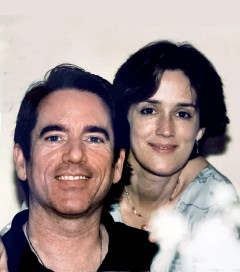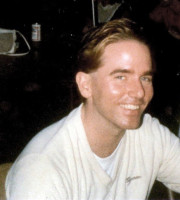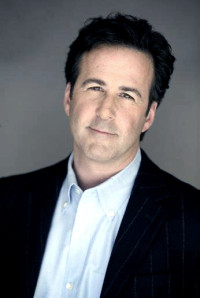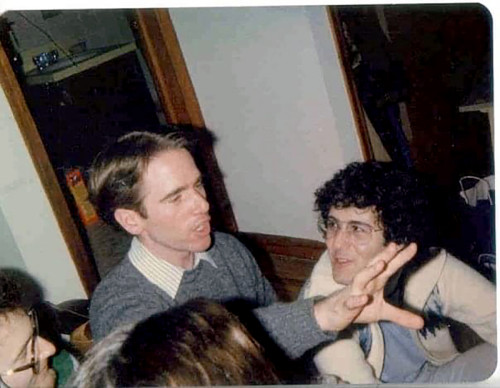Legacy of Respect for Actors and Acting


“The spark to pierce the dark.”
That’s how Shawn Judge ’79 (acting) describes Christopher Gorman ’79 (acting), who passed away at the age of 45 in 2001. The Steven Sondheim lyric from Broadway Baby aptly describes Gorman’s passion for theatre that ignited his journey. He kept every program to the scores of Broadway shows he attended, complete with notes on where he sat and pointed critiques. Given Gorman’s wry and wicked sense of humor, his reviews were likely something to relish.

Gorman loved and respected actors. Ron Fassler ’75–’78 (acting) recalls how his work helped so many—including a young Vince Vaughn, who came to read for Gorman with no agent and few credits, but soon landed his career-launching role in Swingers after he sent him to a few different agents. Fassler lauds Gorman’s modesty; he never made a big deal out of helping actors whose careers soared with his assistance.
Judge recounts how Gorman’s love for the business was “infectious and energizing.” Gorman worked diligently to open the minds of producers and directors to cast people of color. “Throughout the 1990s, he was dedicated to increasing work opportunities, with a focus on African American actors,” Judge says. She remembers his perseverance, even among snide remarks from producers and directors. “The lack of imagination and fear of backlash from advertisers and sponsors kept them from doing the right thing. But nevertheless, Christopher carried on, finding ways to bring about necessary and long overdue change, one role at a time.”
A talented writer, Gorman was a member of the Writers Workshop at AIDS Project Los Angeles from 1994–1998. In his play A Letter from Ethel Kennedy, a mainly autobiographical comedy that chronicles his struggle with the disease, the main character’s dying wish is the performance of a play he wrote. Gorman would have been thrilled when New York’s MCC Theater premiered the play, directed by Tony Award®-winning actress Joanna Gleason and starring his dear friend, Anita Gillette, in May 2002.

Gorman often returned to Purchase to scout new talent or help students by sharing his business expertise. He never lost sight of how his Purchase experience contributed to his success. He once wrote to the alumni office, “Purchase is the best thing that ever happened to me, and my four years there were the happiest of my life.”
A bond forged by the joy, tears, and angst among the members of Company 4—the fourth class of actors in the conservatory—remains strong even today. “What I remember most fondly is how supportive the members of Company 4 were of each other,” Judge says. “As a result of the Company 4 experience, many of us remained lifelong friends who have stayed in touch and continue to support each other.” But Gorman was the glue that held them together for many years.
Gorman’s passing devastated Judge, Fassler, and the other members of Company 4. In their grief, they agreed that the most fitting tribute to his memory would be a scholarship fund for young actors. “Christopher was a gifted actor, director, and casting director. He was such an inspirational person who single-handedly kept us together after graduation, organizing reunions and always being the grand host,” Judge says. In 2011, they committed to raising $25,000 for the Christopher Gorman Memorial Scholarship.
This year, the fund awarded its first scholarship. Judge feels very moved. “It keeps me connected to Christopher (I called him Krishna). Company 4 members Bijou Clinger, Cecile Callan, Leigh Dillon, Lisa Altomare, Ron Fassler, Scott Rhyne, and I didn’t know if we could raise $25,000. The task was quite daunting to all of us, but we had several years to do it, and I’m so happy and so proud that we made it happen.” Recipients must be graduating seniors enrolled full time and “demonstrate superior artistic progress and potential.”

Gorman believed in the arts and their ability to transform our lives. Judge believes his legacy is his belief “that the arts matter, especially theatre. That the arts are vital to giving voice to all our stories and must be supported financially, and we must demand through reform that every medium gives access to artists who have been excluded from the big roles.”
Not surprisingly, when scenes from Bob Fosse’s 1979 film All That Jazz were filmed at Purchase, Gorman managed to find himself a role as an extra in the spectacular final scene. “It always thrills me to see him, dressed in a tux, standing and applauding with only seconds to go before that film’s extraordinary conclusion,” Judge says.
Gorman always wanted to make a difference, and he did for so many. The indelible impression he left on those who knew him will remain memorialized through the scholarship fund in his name.
